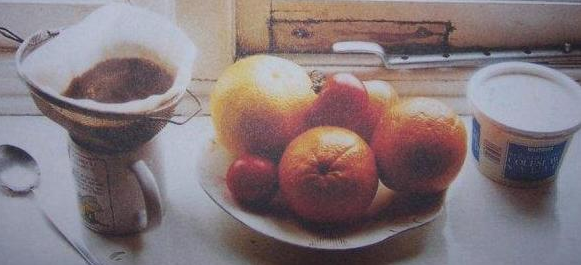++
All food bloggers document food -- its recipes, its history, its context -- for a creative outlet, a hobby, or a profit. But most of those people are not men.
In February, the TIMESONLINE put out a piece on the top 50 food bloggers, five of which were male. Matt Armendariz of Mattbites.com is listed as "one of the select numbers."
Women food bloggers are all over the internet. Some are confined to the home-zone by choice, but most are working, oscillating between what was once the call of duty for a girl and what is now considered the dream modern women should want: to be successful and confident enough to "make a home" by herself, by her own financial gains.
Molly Wizenberg of Orangette is a favorite of mine. She is neither a stay-at-home mom, nor someone who straightaway tied herself (wrists, hips and ankles) to the apron as a gimmick. She actually started her food blog in 2005 after dropping out of a PhD program in social anthropology -- so the girl's smart! -- and while she was "on the search" for her next step she began to write, and eat, and then write about eating, and now she has a book and a soon-to-be opening pizza shop in Seattle.
Molly arrived in the kitchen without coercion, and she confirms my suspicion that something about the kitchen is "right" when life isn't. Something about the kitchen is "personal" and "universal" at the same time. And being there as a woman in 2009 is an immaterial thing.
If there had been food bloggers right after the Civil War, they'd have been the Miss Prim variety. Blogging would have been a lot of lecturing. It would've attempted to moralize, talk of "what the children and/or husband liked," but would have condemned food discussion related, for example, to anatomy (especially brindling at the terms "breast" and "leg")
Today, femme-foodies are open about limbacy, and many other topics, which make it easy for them to turn a food blog into a big discussion about life. Perhaps because of that, the idea that food is "a lot of talking," the movement, the opening of the internet kitchen doors, has perhaps been more effective for one gender over another.
Even though both men and women eat food, and agree that the kitchen is, across the world, an inclusive space, could the desire to talk about food, and connect it to a larger discussion be a gendered thing?
"We all have kitchens," the men seem to say. "We just don't think about it that much."



